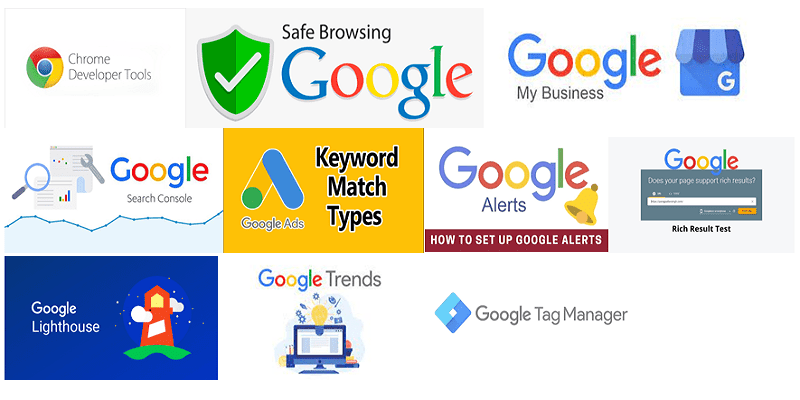
PPC (pay per click) marketing is one of the most effective ways to drive traffic to your website. With a well-optimized PPC campaign, you can drive traffic to your website from a wide range of sources, including search engines, social media, and organic traffic. This post is aimed at helping you optimize your PPC campaign for maximum results. We will cover the basics of PPC campaign optimization, including ad copy, ad layout, and ad targeting. We will also discuss the different types of ads and their respective benefits. Last but not least, we will provide you with a step-by-step guide on how to optimize your PPC campaign for maximum results.
Understand the basics of paid search
Paid search is a powerful advertising tool that can help you reach your target market. It can be used to reach consumers who are looking for your product or service, and it can be done on a global scale. Paid search can help you reach your target market in a number of ways, including through organic search, display advertising, and search engine optimization (SEO).
To optimize your paid search campaign for maximum results, you first need to understand the basics of paid search. Paid search is a type of advertising that allows you to pay Google or another search engine to show your ads to people who are looking for the products or services you offer.
When you run a paid search campaign, you will need to create a campaign goal and a budget. Your campaign goal will tell you what you want to achieve with your paid search campaign, and your budget will help you determine how much you will spend to reach that goal.
Once you have your campaign goals and budget in mind, you need to start planning your paid search campaign. You will need to set up your ad campaign, choose your keywords, and determine your bid (the amount you are willing to pay for each click on your ad).
Once your campaign is set up, you will need to track your performance and make changes as needed. You should track your ad clicks, impressions, and conversion rates to make sure your campaign is performing as expected.
Finally, make sure to follow all the other ad campaign guidelines, such as making sure your ads are relevant and clear, and avoiding false or misleading claims.
By understanding the basics of paid search, you can optimize your campaign for maximum results.
Choose the right keywords for your campaign
One of the most important steps in optimizing your PPC campaign is choosing the right keywords. It’s important to choose keywords that are relevant to your business and your target audience.
When you’re choosing keywords, it’s important to consider the following:
-Your brand
-Your target market
-Your product or service
-The competition
Once you’ve selected the right keywords, it’s important to focus your ads on those keywords and make sure your ads are properly optimized. This means including the right keywords in your ad copy, bidding on the right keywords, and creating ads that look and feel like the rest of your content.

Set bids and create a budget
There are three things you need to do before you start your PPC campaign: set bids, create a budget, and select the right keywords.
Bids are the amount of money you’re willing to pay per click. The higher your bid, the more likely you are to get the ad clicked on. However, you also need to set a budget in order to avoid overspending.
Once you have your bids and budget set, you can start to select the keywords. Make sure you’re targeting the right keywords for your business.
Research your competition
Before you even think about optimizing your PPC campaign, you first need to do some research. You want to know what keywords your competition is targeting and what ads they’re running. This will help you create ads that are relevant and effective.
Once you have a good understanding of your competition, you can start to target your ad campaigns based on their keywords. This will help you to increase click-through rates (CTRs), which will result in more impressions and, ultimately, higher ad spend.
Test your keywords and ads
Testing your keywords and ads is an important part of any PPC campaign. Every campaign is different and you need to find the keywords and ads that are going to work best for your business.
Start by identifying the keywords that are most important to your business. Once you have a list of keywords, you need to find an ad campaign that will target those keywords. You can run a search for your target keywords in Google AdWords or you can use a tool like Keyword Planner.
Once you have your keywords and ad campaign, you need to test your ads and make sure they are targeting your audience. You can do this by running a few ads and seeing which ones get the most clicks.
Keep testing your ads and keywords until you find the ones that are most successful for your business.
Analyze your results
After your campaign’s launch, analyze your results. This will help you determine where and how you can improve your campaigns in the future.
Here are some things to look for:
-Total clicks
-Total impressions
-Clicks from organic search
-Total conversions
-Cost per click (CPC)
-Cost per conversion (CPC)
-Average order value (AOV)
-Average order value (AVG)
Stay on top of your campaign progress
If you’re like most business owners, you probably spend more time worrying about your day-to-day operations than you do paying attention to your PPC campaign. And that’s a mistake.
It’s important to stay on top of your campaign progress so you can make adjustments as needed. This way, you can ensure that you’re targeting the right keywords, creating good ads, and measuring the results.
In addition, it’s important to set a daily goal for your campaign. This way, you’ll always feel a sense of accomplishment and you’ll be motivated to keep your campaign going.
By taking the time to track your campaign progress and make adjustments as needed, you’ll ensure that your PPC campaign is as successful as possible.
Make adjustments as needed
There is no one-size-fits-all when it comes to optimizing your PPC campaign. Factors such as your budget, your target market, the keywords you’re targeting, and the competing ads can all require different adjustments.
However, there are a few general tips that can help you get the most out of your PPC campaign.
First, always start with your budget. You don’t want to overspend on your campaign only to see it fail because you didn’t have enough money to invest in ads that would have generated more leads.
Also, be sure to target the right keywords. You don’t want to waste your time and money targeting keywords that won’t bring in the traffic you need.
And finally, make sure to review your ads and make any necessary adjustments. Sometimes the right keywords are being targeted but the ad is not performing as well as it could be.
By following these tips, you’ll be able to optimize your PPC campaign for maximum results.
Tips for improving your paid search campaign
There are a few things you can do to optimize your paid search campaign for maximum results.
- Choose the right keywords
It’s important to choose the right keywords for your campaign. Keyword research is essential in order to find the right keywords that are relevant to your business and your target audience.
- Pay attention to your ad copy
Your ad copy is the text you see above the fold on search engines. This is where you’ll tell people about your product or service and why they should buy it.
- Create high-quality ads
Your ads should be of high quality so people will take notice. This means using clear, concise, and easy-to-read text; using effective images; and including relevant keywords.
- Track your campaign results
Keep track of your campaign’s results to see how your keywords are performing and how effective your ad campaigns are. This will help you make informed decisions about future campaigns.
- Experiment with different ad lengths and formats
Try different ad lengths and formats to see which ones are most effective for your business. You may also want to experiment with different ad copy, ad formats, and landing pages.
- Keep a positive attitude
Always keep a positive attitude when it comes to paid search campaigning. If you have a good attitude, your campaigns will also be good.
- Be patient
Paid search campaigns can take a little bit of time to result in positive results. Be patient and keep at it, and you’ll see the rewards soon enough.

Conclusion & best practices
There you have it – 10 effective PPC tips to help optimize your campaigns and maximize your results.
- Use the right keywords
Select the right keywords that accurately describe your product or service and that are relevant to your target market.
- Create compelling ad copy
Make sure your ads are compelling and interesting to your target audience. Write effective and catchy headlines, use strong images, and provide useful information about your product.
- Set realistic goals
Make sure your goals are realistic and based on realistic data. Too many businesses set unrealistic goals, thinking they can achieve something they can’t. This only leads to frustration and disappointment among your customers.
- Monitor your campaigns regularly
Make sure you’re always monitoring your campaigns to see how they’re performing. Use tracking tools to measure your progress and make necessary changes as needed.
- Create effective landing pages
Your landing pages are the first thing your customers see after clicking on your ads. Make sure they’re effective and easy to navigate.
- Measure your results
Measure your results frequently and use the information to make changes to your campaigns as needed.
- Be patient
Don’t be tempted to change your campaigns too frequently – this can actually have a negative impact on your results.
- Don’t forget about PPC ads on other platforms
PPC ads can be effective on other platforms, such as Google AdWords, Facebook Ads, and even LinkedIn Ads.
- Use split testing
Test different ad formats and variations to see which works best for your target market.
- Keep things simple
Don’t overcomplicate your campaigns – focus on what works and stick with it. This will help you achieve the best results.
We hope you enjoyed our blog post on how to optimize your PPC campaign for maximum results. By following the tips in this post, you’ll be able to increase your click-through rates and conversion rates, which will in turn help you achieve your business goals. We would love to hear how you went with these tips, so please feel free to leave a comment below or on our social media channels! Thanks for reading.













5 replies on “What’s PPC rate?”
Good Job …………….in this article you shows PPC technique which taught in various Digital Marketing Institute in Dehradun.
Can you be more specific about the content of your article? After reading it, I still have some doubts. Hope you can help me.
I don’t think the title of your article matches the content lol. Just kidding, mainly because I had some doubts after reading the article. https://www.binance.com/id/register?ref=GJY4VW8W
I don’t think the title of your article matches the content lol. Just kidding, mainly because I had some doubts after reading the article.
Can you be more specific about the content of your article? After reading it, I still have some doubts. Hope you can help me.